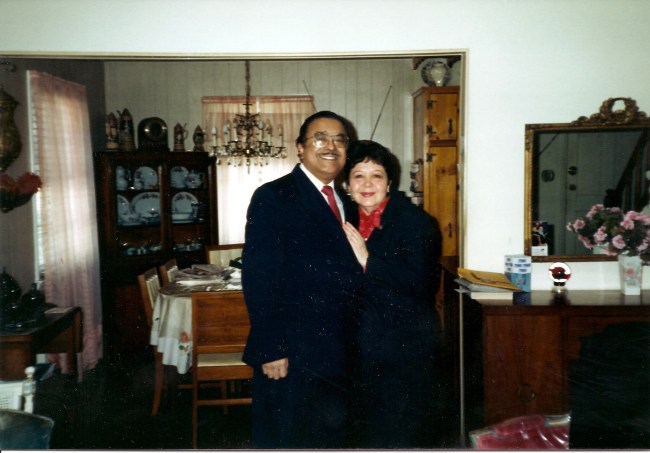UPDATED: Being Latinx Is Not About Color: What We Can Learn From Floriana Lima’s Casting as Maggie Sawyer on Supergirl


image via Bettina Strauss/The CW
[Editor’s Note, 12/15/16 5:50PM: After several conversations with readers, I realized that my original piece wasn’t clearly getting across the ideas I was hoping to get across. Originally, I decided to write this piece upon hearing about Floriana Lima’s heritage, because I had so many conflicting feelings and thoughts about it. I attempted to capture all of those feelings and thoughts into a single piece, and I may have bitten off more than I can chew! What you’ll now read below is my attempt to clarify my original points and provide more context.
My hope is that, whether you agree with my ultimate arguments or not, the actual points I’m trying to make will be much clearer. And I would hope that you all know by now that, as a queer, feminist Latina who loves television, all I want is to do my part to advocate on behalf of inclusiveness. For the groups of which I’m a part, and the ones of which I’m not. – Teresa ]
I was immediately smitten with Floriana Lima on The CW’s Supergirl. When her Maggie Sawyer first locked eyes with Chyler Leigh’s Alex Danvers, I was like “YUP. It’s happening, people. THIS IS NOT A DRILL.” The character’s been billed by the show’s creators as Latina, and Maggie herself talks about being a non-white lesbian growing up in Nebraska. It’s an awesome and rare double-whammy of representation in a fictional universe. I also learned, when looking Lima up on Wikipedia to see her other credits, that she’s not Latina at all, but Italian-American. This is where things got complicated.
A couple of TMS readers have reached out to me asking if I was going to talk about this on the site, saying things via email like “I just wondered if you had see[n] the information floating around the internet about Floriana Lima, who plays Latina woman Maggie Sawyer on Supergirl is actually white. And whether you intended to cover it” and (from Twitter) “don’t know if u know but found out Maggie not even played by Latina actress. @florianalima not.”
I’ll admit that, when I realized she wasn’t a fellow Latina, I was disappointed. It’s always cool when professionals with whom you have ethnicity in common are out there doing their thing! Especially when there are so few in comparison to other groups. But, as disappointed as I was about that, I wasn’t upset. Because the character of Maggie Sawyer is still Latina. That’s how she’s being played and written and advertised. They took a character that was originally white and blonde in the comics, gave the role to a brown woman with dark hair and said We are making the conscious decision to have this character be a woman of color now. That’s huge. To me, having explicitly Latinx characters on the page is all-important.
As to whether or not I knew….yes I knew, because I was interested in the actress and I looked her up on Wikipedia. You know how hard it was to find out this information? Not hard at all. You know why? Because it wasn’t a huge secret!
What this whole situation does is highlight just how complicated and messy it is to be a Latinx performer in the United States.

First, I’ll get a little personal. This is an old photo of my parents (RIP). They were both Puerto Rican. My mom was white. My dad was brown. They both grew up in Puerto Rico until my dad and his family moved to New York when he was nine, and my mom moved to New York in her early twenties. She had a thick accent and wouldn’t be “othered” until she opened her mouth to speak. My father could be “othered” on sight. They were both Latinx.
As for me and my two siblings, my sister took after my mom skin-tone-wise. Now married with two kids, she has an Irish last name, and so people have no indication that she’s in any way Latina unless she starts speaking in Spanish, or says something about it. My brother and I look more like my dad. It’s clearer that we’re “not white,” but I know that I’ve gotten all SORTS of guesses as to what I am, especially when I used to be an actor years ago.
I’ve had people know I’m Latina, but assume I’m Mexican. I’ve had people guess Latina, but not know where to place me. I’ve had people think I’m Indian. I’ve had people think I’m Spanish. I’ve had people think I’m Inuit, or other types of Native American.
I’ve even had people assume I’m Italian.
I’m not insulted by any of these, because I know that on sight, without further information, any one of those could potentially be true. Hell, even my last name gives people trouble. Having done some research on it, “Jusino” used to be “Giusino” (you guessed it! Italian) until some olive-skinned Mediterranean-looking folks moved from Italy through Spain then ended up on the island of Borikén to colonize some Taino-Arawak people. Jusino and Lima started in the same place.
I have so many problems with fandom trying to come for Floma’s skin tone that I don’t even know where to begin. With a drink, perhaps? https://t.co/npybU3jD9o
— Dickens (@deathtodickens) December 13, 2016
As Dickens on Twitter pointed out in an awesome thread you should definitely check out and read in full by clicking on the above tweet, if the Executive Producers on Supergirl are hoping to cast a Latinx role, the only ways in which they can guarantee that the person auditioning is Latinx are to 1) have prior knowledge of that person’s heritage, which one might not have if they don’t know the actor and 2) if they flat-out ask the person in the room.
When I worked for a company that served as a liaison between actors and casting notices years ago, I learned that many notices, when they needed to specify race, would use terms like “African-American-looking” or “Latina-looking” or “Caucasian-looking” or the catch-all “All ethnicities.” When I asked why those and not simply “African-American” or “Latinx,” I was told that this was something that was starting to be done industry-wide, so as not to conflict with anti-discrimination laws. Not all companies do this, but many do. Even though they might be looking for a specific race for a role, they legally can’t limit who walks into the room to audition. You don’t have to hire them if they don’t meet the qualifications, of course, but you can’t stop anyone from applying for the job.
Nor are they allowed to ask point-blank what a person’s background is. It’s good that they can’t ask, in that it’s intended to keep people from being discriminated against.
So, much of the time, all a casting director has to go by is appearance, a name on a resume, and whatever the actor chooses to tell you. This actress’ name is Floriana Lima. Based on her name, she could be Latina. She’s dark with dark hair, and so she could look Latina. And as the role (thank GOD) isn’t part of an immigrant story, or anything overtly Latinx-related, it’s likely that nothing came up in conversation that would necessitate any divulging of family history or shared experiences.
What they could have done is do what I did and look her up on Wikipedia ahead of time. Don’t most employers Google search potential employees ahead of time? I wasn’t in the room, so I don’t know what they really knew or not, but if the producers’ intention was to cast a Latina actress, and they hired her based on superficial information, that’s a huge failing, too. Either they were lazy and didn’t do the needed work, or they cast an Italian-American for a Latina role thinking she’d be good enough casting, which would be offensive.

Image via Diyah Pera/The CW
Yet I bring this up, because I really, really want to help dispel the notion that being Latinx has anything to do with color, or a specific look. It doesn’t. You can’t look at someone and, on sight, assume whether or not they are Latinx. You just can’t.
The problem is that whenever we talk about people of color in the U.S., Latinx are included in that as a group. Or, rather, people say Latinx and don’t think about the fact that Latinx come in many different races. They have a very specific image in mind if they’re not Latinx themselves. Latinx, of course, know better. We know that Latinx are a group made up of several cultures and races united by language, geography, and a specific experience of colonization.
Because of the way Latinx as a group are seen in this country, whenever productions want to cast a Latinx role, they immediately go brown. Because that’s the accepted visual shorthand.
And this sucks for everyone involved. It sucks for the non-brown Latinx who never get cast in roles where they get to explore their lived cultural experiences. You often have white Latinx playing white (or default, nondescript) characters, black Latinx playing African-American, and probably no Latinx of Asian descent playing Asians, because Asians are always getting whitewashed anyway. (HEY-oooooo!)
And this sucks for the brown Latinx because, while they’re always getting cast in roles that are specifically Latinx, there are so few of those to go around. Meanwhile, the brown Latinx are rarely getting cast as anything else.
This is the thing that has people most upset about Lima’s casting. That there are so few specifically Latinx roles to go around, that it hurts that the opportunity didn’t go to a Latina actress. Believe me, I get that, and I agree.
I’ve seen folks in the Twitterverse say that Lima shouldn’t have auditioned for the role at all if they were indeed casting for a Latina. In theory, I would agree with that, too. It would be great if individual actors would or could prioritize social justice in this way. But actors are the lowest rung on the ladder in the entertainment industry. It’s one thing to expect an A-List, millionaire actor to turn down a job based on principles. It’s another to expect the same from a mid-career actor who’s not commanding the big paychecks.
Actors are constantly at the mercy of industry standards, and they have to find their “type” and hold on to it, playing the game so that they can keep getting work, because they are considered the most disposable in the entertainment ecosystem. You don’t want this job? Fine. There are a thousand more who’d take your place.
In Lima’s case, a quick search on her IMDb page shows several Latinx last names among roles she’s played. She gets cast as Latina a lot. Is that right? No. Do I blame her for taking jobs that she’s sent out on by her agents and books, because she needs to make a living? No. I don’t believe in placing the burden of fixing systemic problems on the least powerful in that system. It’s the responsibility of those in power — the producers, the studios — to prioritize making this right. Actors will follow and adjust how they pursue employment accordingly.
So there are two areas of concern: Latinx media representation, and opportunities for Latinx entertainment professionals.
If we care about Latinx representation in media, it all starts with the writing (and with writers!). It starts with characters that are explicitly Latinx being written in stories that aren’t limited to the immigrant narrative. As this L.A. Times article points out, Latinx are always treated like newcomers. They’re rarely allowed to have arrived. We need more Latinx characters like Maggie Sawyer who just happen to be Latina but also, you know, are lesbian cops who fight aliens. That is, if Maggie even is Latina. While the show’s creators and The CW’s press materials have billed Maggie as a Latina character, on the show Maggie has referred to herself as “non-white,” which can mean anything.
When I refer to opportunities for Latinx entertainment professionals, I mean actors, of course, but more importantly I means Latinx on the upper rungs. It means Latinx writers and producers, directors, studio executives.
However, Latinx or not, both representation and opportunity comes down to decision-makers making hiring inclusively a priority. This is not something that begins and ends with individual roles or jobs. This is something that these decision-makers need to be thinking about all the time. Inclusion needs to be part of their ongoing ethos, not an afterthought they only realize in a rush after they’ve already cast their show or staffed their writers’ rooms with a majority of white people.
And that starts with a conscious decision that this matters, not just because it’s the right thing to do, but because it’s valuable to a show or a corporate environment. It starts with choosing to be mindful of this every single day. Mistakes like a non-Latinx getting cast in a Latinx role wouldn’t happen if, now that “diversity” has been a buzzword and everybody’s aware that inclusiveness is a problem (And seriously, at this point everybody knows that there’s a problem with lack of inclusiveness, I don’t care how unconscious one’s bias is), decision-makers thought about each of their decisions in the context of inclusiveness.
As for Lima, she’s already been cast. I really hope that the character of Maggie Sawyer is identified as something and I would love that something to be Latina. She shouldn’t be a generic character of color. Feelings about Lima’s casting aside, the character of Maggie deserves to have a specific culture and background to draw from and inform her personality.
This may have been a failure in granting Latinx opportunity, but it can still be a good example of Latinx representation if done right.
(images via The CW/Warner Bros. Television, and my personal archive)
Want more stories like this? Become a subscriber and support the site!
—The Mary Sue has a strict comment policy that forbids, but is not limited to, personal insults toward anyone, hate speech, and trolling.—
Follow The Mary Sue on Twitter, Facebook, Tumblr, Pinterest, & Google+.
Have a tip we should know? [email protected]